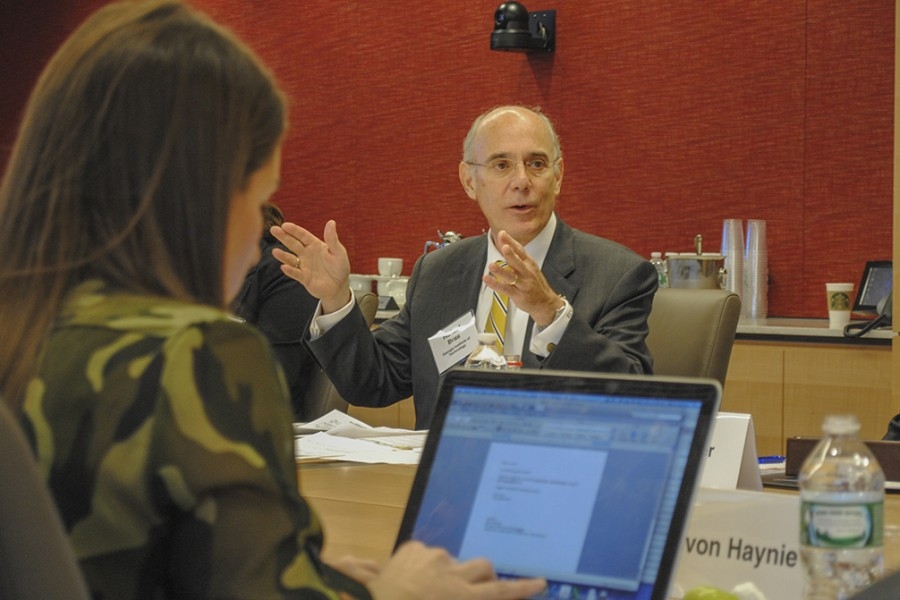
Georgia Tech Provost Rafael Bras and Professional Education Dean Nelson Baker — both School of Civil and Environmental Engineering faculty members — participated in a Tech-organized national media roundtable on technology in higher education this week.
More from the Georgia Tech News Center:
The Georgia Institute of Technology organized a national media roundtable Thursday to discuss the current state of online learning in higher education and how technology will help shape its future.
Provost Rafael L. Bras hosted the event, “Technology and the Future of Online Higher Education,” at the Carnegie Corporation of New York’s headquarters in New York City.
There was universal agreement that technology maneuvered higher education to a new trajectory where teaching and learning is changing for the better. Panelists were optimistic about a new student-centered approach to higher education and agreed that massive open online courses (MOOCs) paved the way for that new path.
“What we’re talking about is bringing education to many more students,” Bras said.
Georgia Tech Provost Rafael L. Bras hosts a national media roundtable on Technology and the Future of Online Higher Education at the Carnegie Corporation of New York in New York City. Panelists included the leading online platform providers – Anant Agarwal, the CEO of edX; Vivek Goel, the chief academic strategist for Coursera; and Sebastian Thrun, the CEO of Udacity.
Other panelists included: Molly Corbett Broad, president of the American Council on Education; Dewayne Matthews, vice president for Strategy Development at the Lumina Foundation; Jason Palmer, deputy director for Postsecondary Success for the Bill & Melinda Gates Foundation; Amin Saberi, CEO of NovoEd; Scott Smith, the senior vice president for Human Resources Operations at AT&T; and Nathan Urban, the interim provost at Carnegie Mellon University.
In addition to Bras, other Georgia Tech panelists were: Nelson Baker, dean of Professional Education; Rich DeMillo, director of the Center for 21st Century Universities; and Zvi Galil, dean of the College of Computing.
Joining the panelists were several reporters, who asked questions and helped guide the conversion. The reporters were: Nichole Dobo, The Hechinger Report; Tim Goral, University Business; Devon Haynie, U.S. News & World Report; Natalie Kitroeff, Bloomberg Businessweek; Melissa Korn, The Wall Street Journal and Tamar Lewin, The New York Times.
Galil and others touted Georgia Tech’s online Master of Science degree in Computer Science, which launched in January and currently enrolls more than 1,268 students. The degree is a collaboration among Tech, AT&T and Udacity.
The program’s low tuition cost — $6,600, compared to $46,000 for out-of-state tuition for an on-campus degree — has made it accessible and affordable to many students.
One of the more engaging discussions focused on how to improve access for all students. The panelists noted there are tremendous opportunities to expose more students to college and help them succeed.
These opportunities have yet to be achieved, but they are achievable, Bras said.
“A lot of things we think we can not do with technology we can do and, in fact, are already doing,” Bras said. “We are on the right track. The future is bright.”

